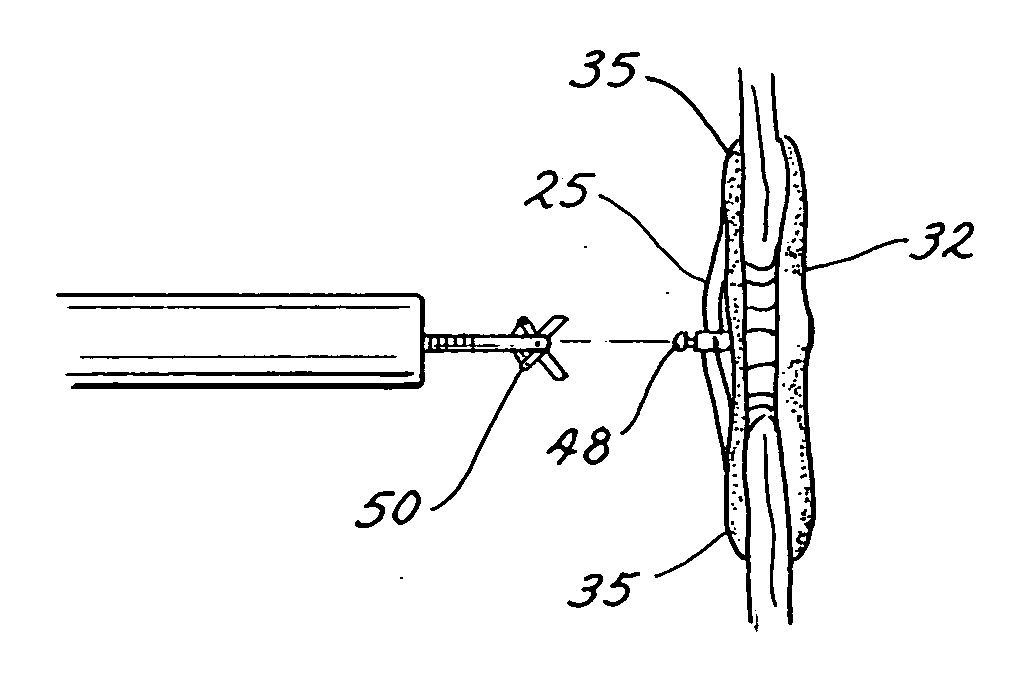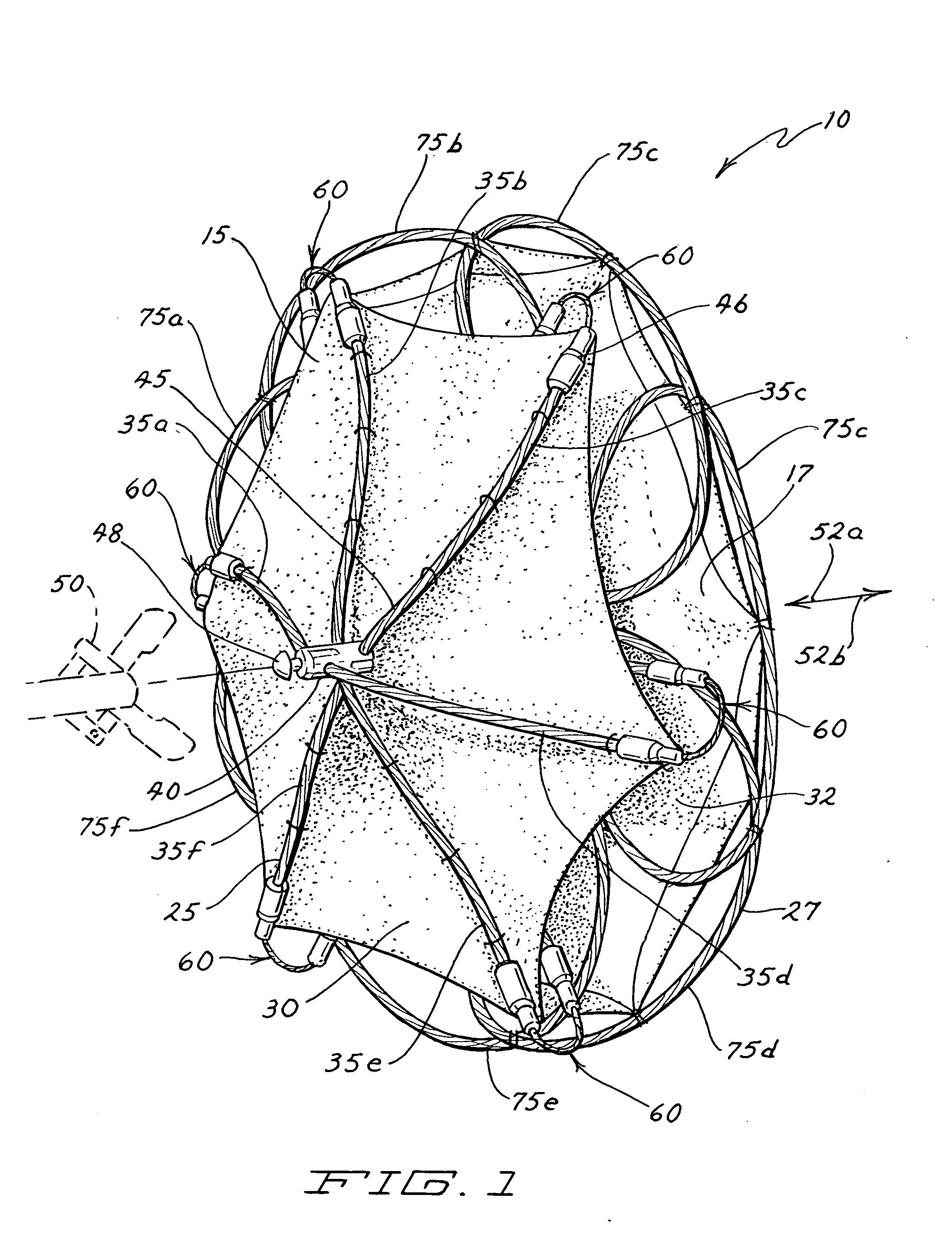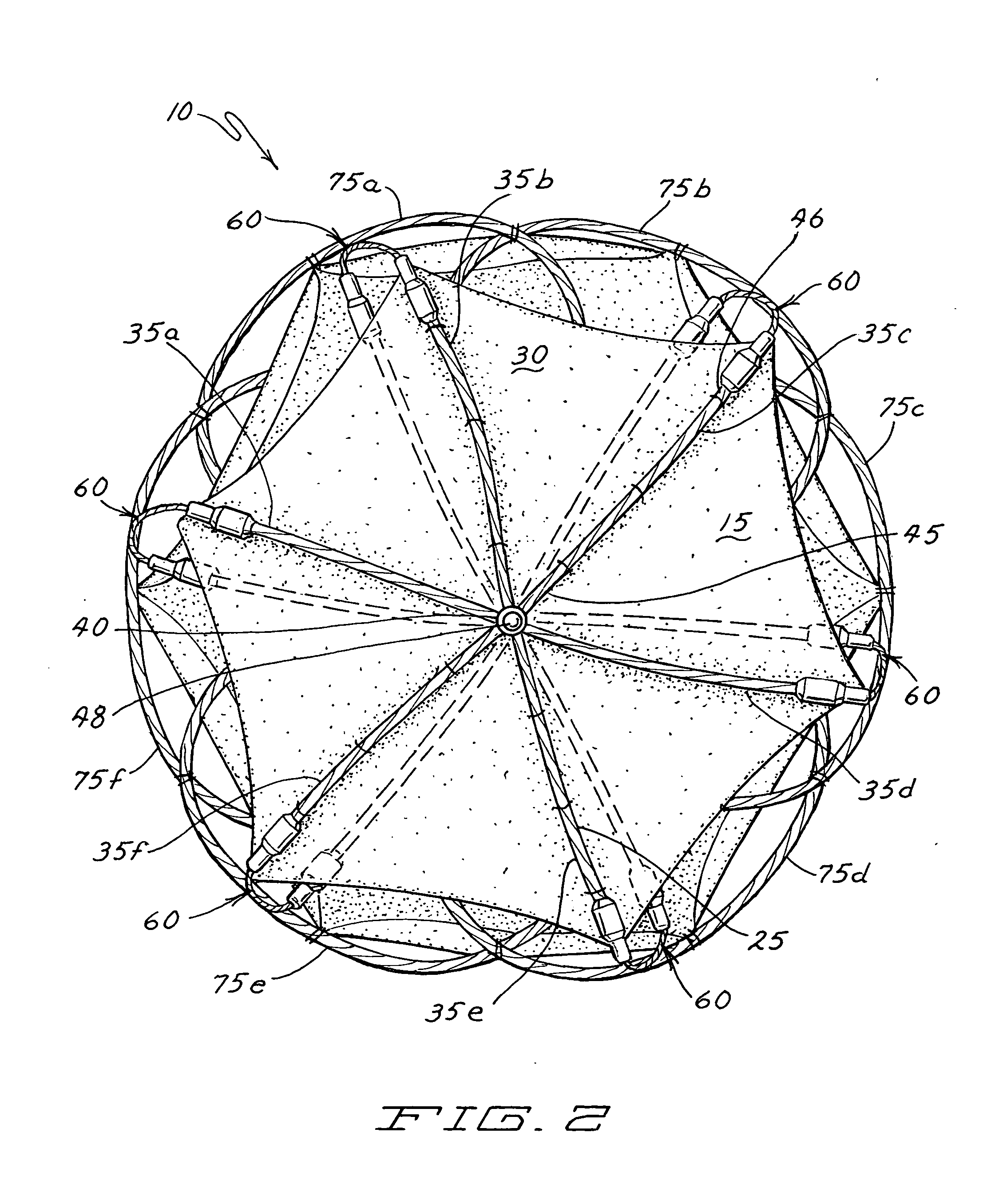Medical device for occluding a heart defect and a method of manufacturing the same
- Summary
- Abstract
- Description
- Claims
- Application Information
AI Technical Summary
Benefits of technology
Problems solved by technology
Method used
Image
Examples
Embodiment Construction
)
[0026]An exemplary embodiment of an occlusion device 10 is illustrated in FIG. 1. In this perspective view, the right side 15 of the device 10 is shown in the foreground and the left side 17 in the background. Throughout, the terms “right” and “left” are used for convenient reference and are selected in accord with the orientation of the device as it would typically be situated in the heart and in accord with typical cardiac terminology for distinguishing the sides of the heart. These terms should not, however, be considered limiting. (It is noted that these terms are opposite to the orientation of the device on the page in FIG. 1, such that the right side 15 of the device is on the left side of the page.) The device 10 includes right and left frames 25 and 27 respectively. A right sheet 30 is coupled to the right frame 25 and a left sheet 32 is coupled to the left frame 27.
The Right Frame
[0027]As depicted in FIG. 1, the right frame 25 is formed in part by several radially-extendin...
PUM
 Login to View More
Login to View More Abstract
Description
Claims
Application Information
 Login to View More
Login to View More - R&D
- Intellectual Property
- Life Sciences
- Materials
- Tech Scout
- Unparalleled Data Quality
- Higher Quality Content
- 60% Fewer Hallucinations
Browse by: Latest US Patents, China's latest patents, Technical Efficacy Thesaurus, Application Domain, Technology Topic, Popular Technical Reports.
© 2025 PatSnap. All rights reserved.Legal|Privacy policy|Modern Slavery Act Transparency Statement|Sitemap|About US| Contact US: help@patsnap.com



